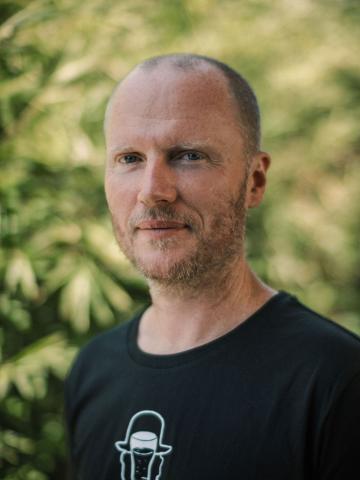


New tools and knowledge to help Victoria adapt its bushfire risk strategies in a changing climate are at the centre of bushfire scientist Dr Hamish Clarke’s four-year Australian Research Council (ARC) Mid-Career Industry Fellowship, bridging research and frontline fire management.
EMCAP Network Executive Committee Chair and Natural Hazards Research Australia (the Centre) researcher, Dr Hamish Clarke (University of Melbourne) began his four-year ARC Mid-Career Industry Fellowship, Decision support for climate-adapted bushfire risk mitigation.

Image: Dr Hamish Clarke
The project is a close collaboration with the Victorian Department of Energy, Environment and Climate Action (DEECA), the Country Fire Authority (CFA) and the Centre, with Hamish spending time onsite each week with partners throughout the Fellowship to bake in co-design.
“This is a really exciting opportunity to address knowledge gaps in fire management effectiveness and climate change and build stronger links between research and practice,” said Hamish.
“We’ll be looking carefully at existing and upcoming projects, processes, decisions and roles, to figure out where we can make a difference.
“Sometimes this will be through new research, sometimes it might be about making better use of existing research, other times it could be about building better connections or processes to support ongoing translation and two-way communication.”
A key Fellowship deliverable is the development of a prescribed burn prioritisation tool to optimise burn outcomes across multiple objectives.
“The prioritisation tool needs to be flexible and interactive, supporting decisions about how to spread burns across the landscape and how to optimise placement of the next fuel treatment considering difficulty, window availability and likely encounter rates,” Hamish said.
“We know there’s a lot of work already happening in this space, so we’ll focus on understanding where we’re at now and how to develop a tool that fits within existing systems and support staff to meet their goals.”
Other work planned for the first year includes a knowledge review of fire management effectiveness across fuel management, suppression and community engagement, starting with strategic fuel breaks, and an analysis of current and future weather windows for prescribed burning.
“Our focus is Victoria but there’s obvious connections with other states and territories, as well as other hazards. We’d love to build these up over the project.”
For more information contact Hamish Clarke hamish.clarke@unimelb.edu.au